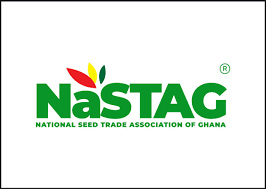The National Seed Trade Association of Ghana (NaSTAG) found itself embroiled in a complex banking dispute with Stanbic Bank, culminating in the Bank of Ghana directing the closure of all NaSTAG’s accounts with the bank. The controversy, sparked by allegations of identity theft, procedural lapses, and unauthorized account opening, unfolded over several months, involving forensic investigations, petitions to regulatory bodies, and a war of words between the involved parties. At the heart of the matter was the disputed opening of a new account at Stanbic Bank’s Achimota branch, allegedly without the authorization of Dr. Amos Rutherford Azinu, the immediate past president of NaSTAG.
Dr. Azinu vehemently denied any involvement in the account opening process, claiming his personal documents, including his Ghana Card, passport photo, and signature, were fraudulently used. He pointed fingers at Mr. Leonard Nii Lante Mills, NaSTAG’s former accountant, and several Stanbic Bank employees, accusing them of complicity in the alleged identity theft. His formal complaints to the Inspector General of Police and the Bank of Ghana triggered investigations into the matter, leading to Stanbic Bank conducting its own internal forensic audit. The audit confirmed the opening of the disputed account using a resolution predating Dr. Azinu’s tenure and listing him as a signatory, a claim he strongly refuted.
Stanbic Bank’s internal forensic report, while acknowledging procedural irregularities, concluded there was no evidence of collusion between bank staff and former NaSTAG employees. The report highlighted the bank’s acceptance of an outdated resolution and the failure of staff to verify Dr. Azinu’s identity in person or witness his signature, as required by banking procedures. These lapses, the report suggested, may have facilitated the unauthorized account opening. However, it maintained that the resolution, although old, was technically still valid, seemingly attempting to justify the bank’s actions. This conclusion, however, failed to satisfy Dr. Azinu, who continued to demand accountability and transparency from the bank.
Despite Stanbic Bank’s initial assertions that Dr. Azinu was a signatory to all NaSTAG accounts, subsequent correspondence and the disputed signature card itself presented conflicting information. This discrepancy, along with the bank’s admitted failure to follow proper KYC procedures, fueled Dr. Azinu’s suspicion of fraudulent activity. While the bank attributed the issue to “internal association politics,” Dr. Azinu remained unconvinced, highlighting further irregularities, including the opening of the disputed account despite a resolution instructing the removal of another signatory. He criticized the bank for not providing original documentation, including the signature card and KYC forms, despite repeated requests, further deepening the distrust between the two parties.
The Bank of Ghana, having received and investigated Dr. Azinu’s complaint, ultimately directed Stanbic Bank to close all accounts linked to NaSTAG. This decisive action underscored the seriousness of the allegations and the regulatory body’s commitment to upholding banking standards and protecting the interests of customers. The bank’s decision to terminate its relationship with NaSTAG, while seemingly a resolution to the immediate dispute, left lingering questions about the broader implications for accountability and systemic reforms within the banking sector. The incident brought into sharp focus the vulnerabilities within banking procedures and the potential for exploitation through identity theft and procedural loopholes.
The NaSTAG-Stanbic Bank saga serves as a cautionary tale, highlighting the importance of robust internal controls and strict adherence to KYC procedures within financial institutions. The case also raises questions about the efficacy of existing regulatory oversight and the need for stronger mechanisms to prevent and address such incidents. While Stanbic Bank’s internal report attributed the issue to procedural lapses rather than deliberate collusion, the lack of proper verification processes and the acceptance of outdated documentation enabled the alleged fraudulent activity to occur. The incident underscores the need for continuous review and improvement of banking practices to safeguard against similar occurrences in the future. Whether this incident will spur broader institutional reforms and strengthen regulatory oversight remains to be seen, but the case has undoubtedly brought the issue of banking integrity and customer protection to the forefront.














